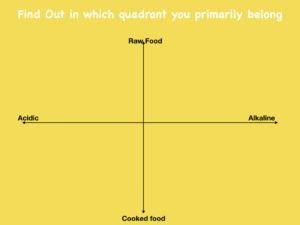The ‘Perfect’ diet is like a mirage that might seem attractive in the beginning but sets you up to eventually be disheartened and discouraged. The bitter truth is that there is not one perfect diet that works for every person.
As each individual is different, with their distinct genetics, age, gender, health history and goals, the trick is to devise your own diet that works for you. So, stop searching for the perfect diet and instead create a personalized diet that works for you.
No One-Size-Fits-All Approach for Diets
A recent study was undertaken by researchers from King’s College London, Massachusetts General Hospital and nutritional science company ZOE. This study measured 1100 UK and US adults, 60 percent of whom were twins and their various blood markings (such as blood sugar, fat levels) in response to standardized and chosen meals.
Even identical twins in similar environments varied in their responses to the same food. And the usual suspects, including fat and carbohydrates, explained less than 40 percent of the differences in reactions to food between individuals.
Therefore recommendations based on a standard diet plan are bound to fail. Since it does not take the individual and their body constitution into consideration, what we really need is a personalized diet plan.
Choosing the Right Diet Plan that Works For You
Each individual reacts differently to what they eat based on their basal metabolism rate, gut microbiome, and other factors. But, that does not mean you need not heed general nutritional advice. There are still universal guidelines and recommendations that everybody agrees on. This includes eating plenty of vegetables, fiber and avoiding processed food.
On the contrary, other lingering questions – Is it okay to skip breakfast? Does fasting work? Is a low-carb or low-fat diet better for weight loss?—may not have one single or definite answer? It can differ from person to person.
That is why it becomes important for you to wear a detective hat and find out which diet is beneficial for your body. Here’s how you can find the right diet mix for your body:
The Diet Quadrant
Food can be generally classified under the following spectrum:
- Alkaline
- Acidic
- Raw
- Cooked
You need to find the right combination that works well for your body. Move around the quadrant to build exposure and find out which quadrant makes you comfortable. Stay in that quadrant most of the time and keep moving around once in a while:

1. Alkaline vs Acidic
This is based on the pH of the residue after food is metabolized in your body. Some food leaves an acidic residue and some leave an alkaline residue. The key is to strike the right balance and find out how you feel after consuming the food.
If it is making you sluggish and craving for more, then it may not be right for you. On the other hand, if you feel energized and satiated for a long time, then you have found the right balance.
Acidic foods include dairy, fish, meat, sugar, bread, coffee, wheat, rice. Some alkaline forming foods include dark green leafy vegetables, lemon, millets, quinoa, lentils, almonds, flax seeds, chia seeds. Read here to know how you can combine alkaline vs.acidic foods.
2. Raw vs Cooked
As for raw and cooked food, some people take to raw food better. While some find it difficult to digest and prefer to have it cooked. Again, you need to figure out what’s best for your body. If you feel eating raw food like salads and fruits can sustain your energy levels, go for it. Else opt for cooked food.
Personal Nutrition is the Way to Go
Instead of following a generic diet or belief system, all your diet needs is the right mix of nutrients. Keep a food journal to record how you felt after consuming the food and understand what works for you. It is important to listen to your body as you experiment and find the right diet for you. The body will send you the right signs.
Ask yourself the following questions to guide your learning process:
1. When Do I Need More Energy During the Day?
Eat wholesome meals when your body needs the most fuel. For instance, if you have a busy hectic day ahead be sure to give your body a nutritious start with a healthy breakfast.
2. How Much Food Do I Need To Feel Satisfied?
Practice mindful eating. Make sure that you taste the food and feel the pleasure of eating without any distraction. This will enable you to stop before you are full, eat less and feel more satisfied.
3. How Do I Feel After Consuming Different Types of Food?
After you eat a wholesome meal with leafy greens, healthy fats, and lean protein how do you feel? On the contrary, a high carbohydrate meal, processed food or meals from restaurants is making you feel any better.
4. What Do I Eat For Reasons Other Than Hunger?
Do you snack in the noon because you are bored? What other reasons you might tend to overeat? Investigate why you eat the way you do and look for alternative ways to relieve stress without food.
As you become more aware of your eating practices, you are sure to find the right diet that works for you. Instead of relying on commercial diet plans or weight loss programs, personalize your own diet.
The more you own your diet, the more likely you are to follow your own rules, stay motivated and be healthy.
